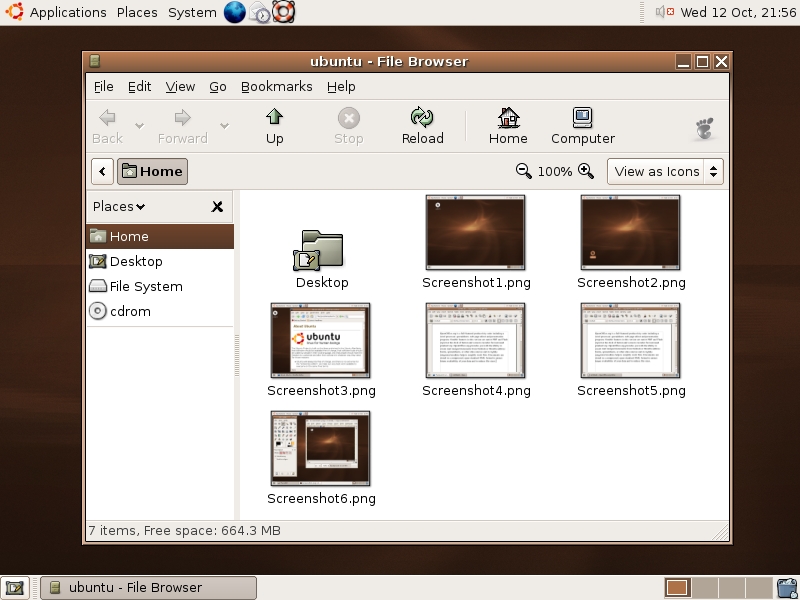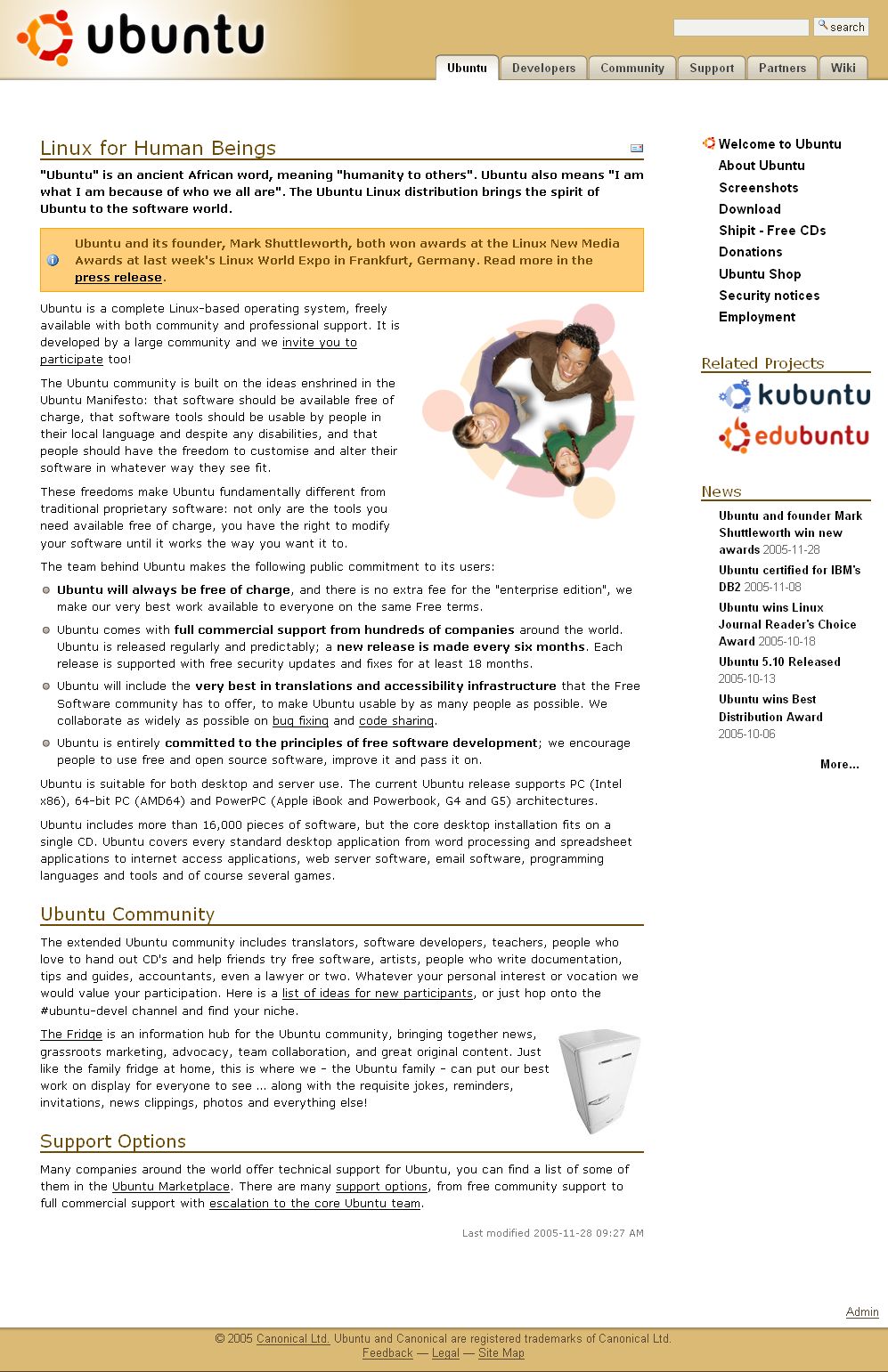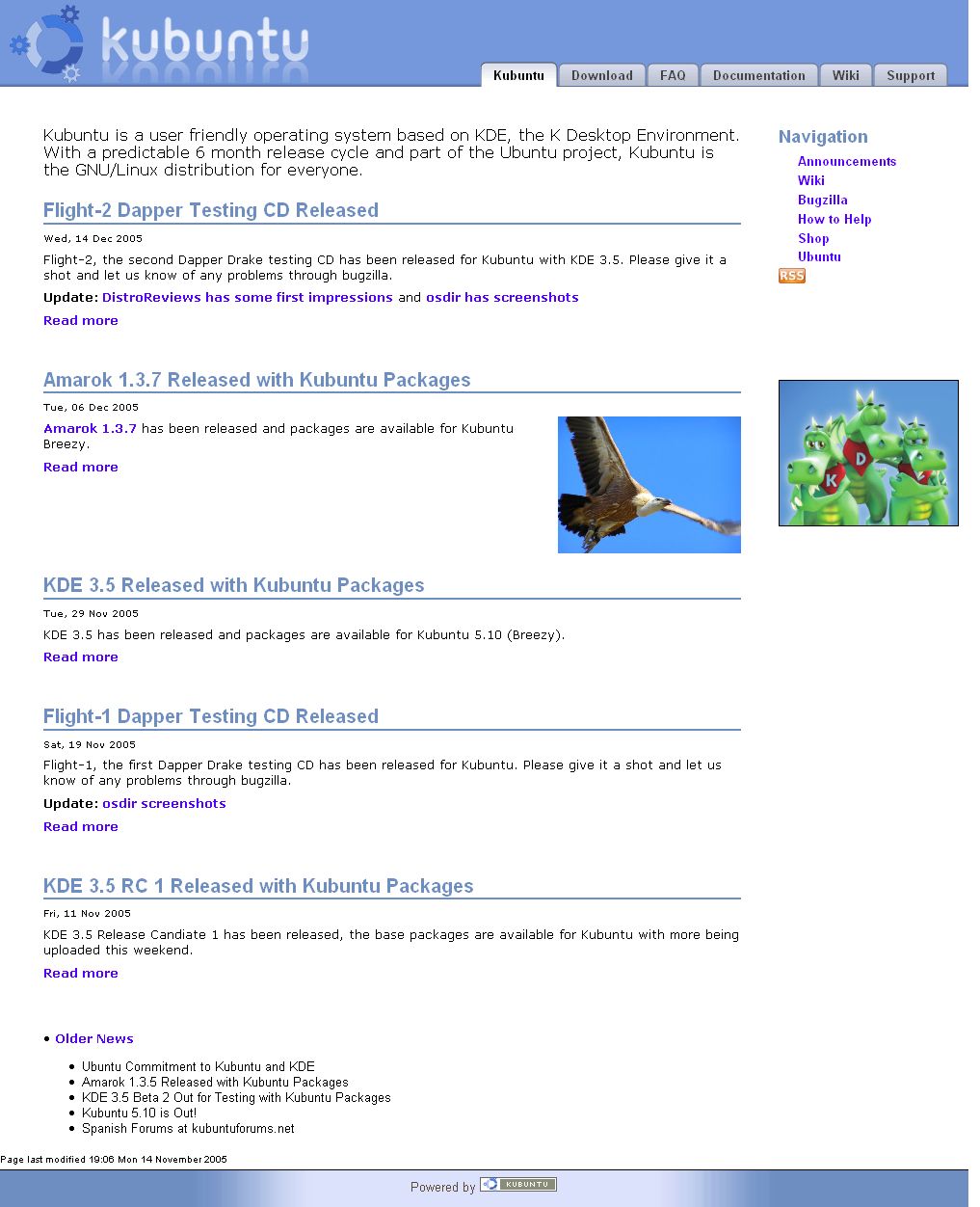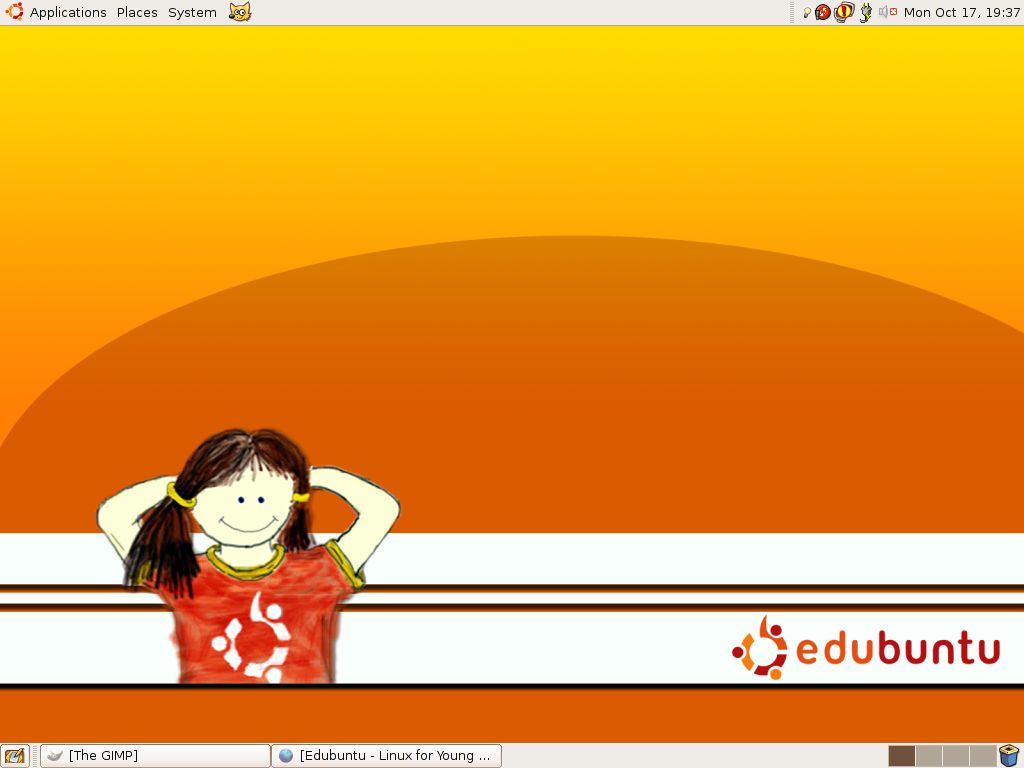Ubuntu has become increasing popular amongst many Linux users, especially users trying Linux for the first time. Just why is Ubuntu so popular? I’ll explore some of its features and distributions this month, including Kubuntu and Edubuntu, and try to find out.
Ubuntu
Ubuntu, according to their website, is “Linux for Human Beings”. Ubuntu, an ancient African word meaning “humanity to others”, is a community designed Linux distribution based on Debian that is designed to be as user-friendly as possible.
Ubuntu is a community designed Linux distribution that is designed to be as user-friendly as possible

Ubuntu is quickly becoming the defacto standard in user-friendly distributions. Since it is Debian, apt will allow you to pull from a huge repository of Debian-ready applications and have them installed within minutes.
Ubuntu is also easily customizable, allowing you to completely change the look of the Gnome desktop in just a few clicks.
Ubuntu has become so wide-spread that variations of the operating system for KDE and Educational uses have emerged (Kubuntu and Edubuntu, respectively) based on the same components.

UbuntuLinux.org is the official home of Ubuntu, providing downloads, documentation, support and various community documents and forums. This is the center of all things Ubuntu and should be the first stop for those interested in the operating system.
UbuntuLinux.org also provides links to other Ubuntu sites, as well as allowing you to order free Ubuntu CDs. You can also visit the shop to buy Ubuntu branded hats, stickers, mugs and dog t-shirts (you’ll want man’s best friend advertising your favorite operating system too, right?).
Kubuntu
Kubuntu provides the same Ubuntu simplicity and community to KDE fans. Kubuntu is released at or around the same time as Ubuntu, so updates are released near-simultaneously with Ubuntu. Kubuntu also uses the same source and binary packages as Ubuntu, hence making the two interoperable.
Book Competition!
This week we are giving away a copy of Building Online Communities with Drupal, phpBB, and WordPress.
All you need to do to enter is check out the latest book competition announcement on our blogs page.
GOOD LUCK!
Thanks go to Apress for providing this fantastic prize.
Kubuntu shares Ubuntu’s view on a community distribution and the similarity between the two sites (and distributions) is immediately apparent.

Kubuntu.org is Kubuntu’s official home; it’s designed almost exactly like UbuntuLinux.org, except that it is shaded with blue rather then orange. Like UbuntuLinux.org, it’s the “hub” for all things Kubuntu: including forums, support, wiki, documentation and downloads.
Overall, Kubuntu is the “Ubuntu” for anyone who wants KDE’s tools and power in their desktop enviroment.
Kubuntu is the “Ubuntu” for anyone who wants KDE’s tools and power
Edubuntu
Edubuntu is also based on Ubuntu, but it contains a mix of Gnome and KDE tools and is designed for (as its name implies) an educational environment. Edubuntu is also released with Ubuntu, and uses the same Debian packages as Ubuntu and Kubuntu.
Edubuntu is designed for (as its name implies) an educational environment

Edubuntu’s motto is “Linux for Young Human Beings”, and Edubuntu carries this thought though the entire operating system.
Edubuntu includes OpenOffice, the KDE Edutainment Suite, GCompris, Tux4Kids and the Schooltool calendar; all of this with a customized Gnome desktop.
Conclusion
With all its features, versions and usability, Ubuntu might just be a fad worth checking out. Each of these Ubuntu-based system’s installers fit on a single 700MB CD and will install on almost any computer. Downloads for the CD’s images are available on the website for the distro you want.
Ubuntu and its variants can also be downloaded as live CDs that you can try before you install, so there’s no excuse not to try out the next new Linux fad!